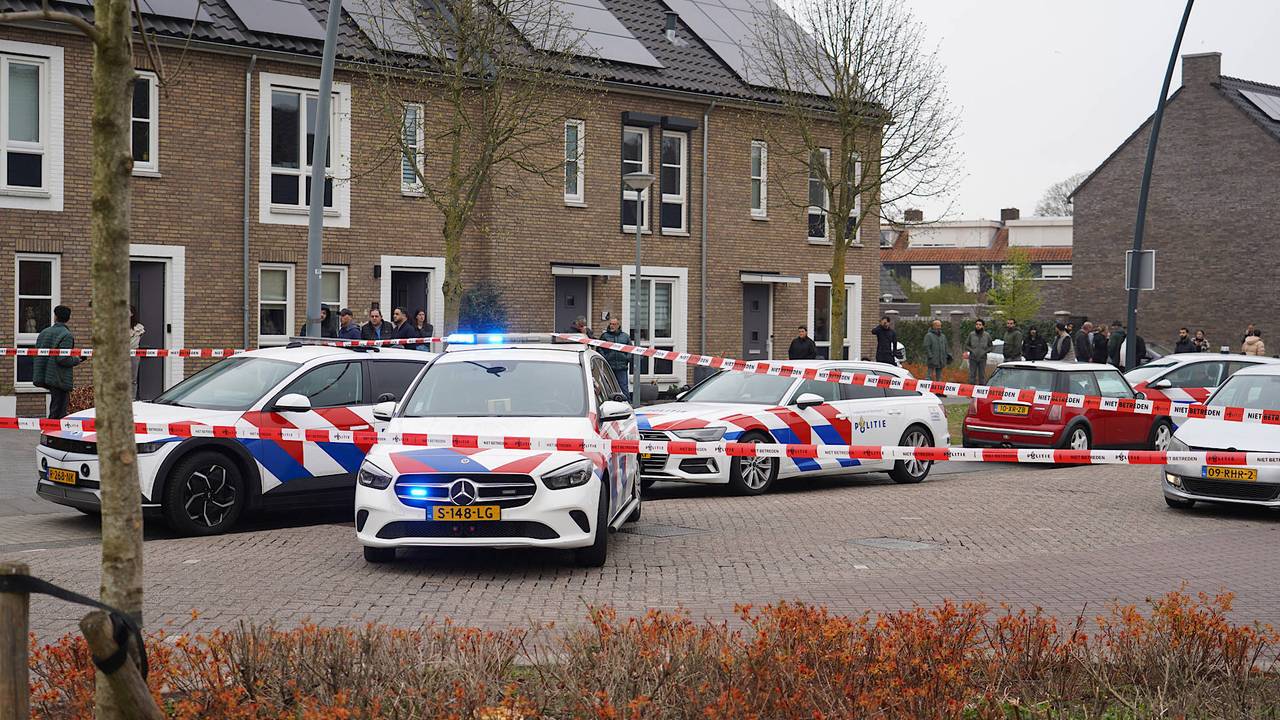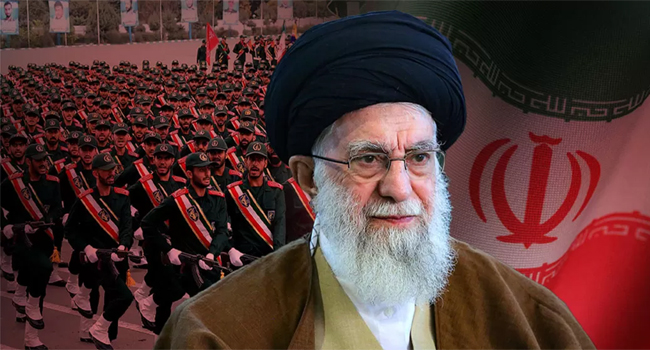U.S. Officials Engage in High-Stakes Ukraine Talks amidst Ceasefire efforts
Amidst escalating conflict, U.S. leaders seek diplomatic solutions for Ukraine.
Washington, D.C. – U.S. Secretary of State Marco Rubio and Steve Witkoff, President Donald Trump’s international envoy, engaged in high-level discussions with Ukrainian and European officials in Paris on Thursday. The summit aimed to fortify Ukraine’s defenses against Russia’s unrelenting invasion.
A source from the Elysée Palace reported an “excellent exchange” between Ukrainian and U.S. officials and their British, French, and German counterparts.The meetings in Paris provided “a very strong strategic opportunity.”
according to the source,Ukraine and the three European nations emphasized their shared support for Trump’s efforts to achieve a swift resolution to the war.
Further discussions are scheduled for the following week in London using the same format. State Department spokesperson Tammy Bruce did not confirm Rubio’s attendance.
French president Emmanuel Macron described Thursday’s talks as “a day of diplomatic mobilisation” in a social media post.
“Today,we engaged in a positive and constructive discussion on how to achieve both a ceasefire and a extensive,lasting peace,” Macron stated.
Ukrainian President Zelensky thanked Macron on social media for his leadership and the work of the attending countries’ representatives in paris.
“It is indeed critically important that we hear each other, refine and clarify our positions, and work for the sake of real security of Ukraine and all (of) our Europe,” he said.
President Trump told reporters on Thursday that the U.S. would be “hearing” from russia “this week” concerning the U.S. proposal for a ceasefire between Russia and Ukraine.
“we’re going to be hearing from them this week, very shortly, actually, and we’ll see.but we wont it to stop. We want the death and the killing to stop,” the president stated in the Oval Office.
Trump clarified that while he is not a “big fan” of Zelensky, he does not hold the Ukrainian leader accountable for the war.
“I don’t hold Zelensky responsible, but I’m not exactly thrilled with the fact that that war started. That was a war that would have never started if I were president,” Trump told reporters.
While Trump’s pledge to end the war quickly has not materialized, hopes for a full truce by Easter have also faded. Despite overtures from Washington, Russia has intensified its strikes on Ukraine in recent weeks.
For Ukraine’s European allies, the summit provided an opportunity to assess the Trump governance’s strategy regarding the war. Concerns have arisen in Kyiv and among its allies regarding trump and Witkoff’s echoing of Kremlin talking points. These talks were viewed as a chance to challenge and dispel those perceptions.
Despite aspiring goals, the Trump administration has faced challenges in brokering a sustained peace agreement. Critics have suggested the U.S. has favored punitive measures against Ukraine while offering incentives to russia.
Following a brief suspension of weapons and intelligence sharing with Ukraine in March, Kyiv promptly accepted the U.S. proposal for a 30-day ceasefire.
The White House stated that both Russia and Ukraine agreed to a ceasefire concerning energy infrastructure and the Black Sea after separate discussions with officials from these nations. Though, the Kremlin later announced it would only implement the agreement upon the lifting of sanctions on its banks and exports.
The Ukrainian think-tank Centre for Countering Disinformation pointed out that the suppose truce has done little to constrain Russia’s aggression. In the 22 days after the truce, the Russian army killed nearly 2.5 times more Ukrainians than during the same period before it was announced, the Center said in an update Tuesday.
Reflecting growing frustration with Moscow, Trump stated last week that “Russia has to get moving,” without providing specific deadlines or ultimatums.
During the Paris summit, Kirill Dmitriev, a leading Russian negotiator, alleged that several countries were attempting to “disrupt” Russia’s dialog with the U.S. He described Putin’s recent meeting with Witkoff as “extremely productive” but acknowledged that the dialogue was occurring under “very tough conditions – constant attacks, constant disinformation.”
Recent developments and U.S. Interests (Post-April 17, 2025)
As the Paris summit, the situation in Ukraine remains highly volatile. While diplomatic efforts continue, fighting has intensified in the eastern regions, with significant civilian casualties reported. The U.S.Congress is currently debating a new aid package for Ukraine, facing increasing pressure from some factions to prioritize domestic spending. This debate underscores the tension between U.S. commitments abroad and pressing needs at home.
There have been increasing calls from within the U.S. for greater openness regarding the specific terms of any potential ceasefire agreement. Critics argue that a deal that compromises Ukraine’s sovereignty or territorial integrity would set a risky precedent and embolden further aggression from Russia and other authoritarian regimes. Furthermore, concerns persist about Russia’s adherence to any negotiated terms, given its track record of violating past agreements.
Counterargument: Is Diplomacy with Russia a Mistake?
Some argue that engaging in diplomatic talks with Russia, especially given its recent actions, is a futile exercise and only serves to legitimize its aggression. They contend that the U.S.should focus solely on providing military aid to Ukraine to help it defend itself. However, proponents of diplomacy argue that, despite the challenges, it is essential to exhaust all possible avenues for de-escalation and a peaceful resolution.They believe that a purely military approach risks a prolonged and even more devastating conflict, with possibly catastrophic consequences for ukraine and the wider region. Diplomacy, even if difficult, offers a path toward a negotiated settlement that could ultimately save lives and prevent further destruction.
Practical Implications for U.S.Citizens
The conflict in Ukraine has far-reaching implications for U.S. citizens,including:
- Economic impact: Rising energy prices and potential disruptions to global supply chains can affect household budgets.
- National security: The conflict underscores the importance of maintaining a strong national defense and deterring aggression from adversaries.
- Humanitarian concerns: The plight of Ukrainian refugees and displaced persons highlights the need for international humanitarian aid and support.
FAQ: U.S. Policy on Ukraine
- What is the primary goal of U.S. policy in Ukraine?
- The primary goal is to support a sovereign, autonomous, democratic, and prosperous Ukraine.
- What types of aid has the U.S. provided to Ukraine?
- The U.S. has provided military, financial, and humanitarian aid to Ukraine.
- Is the U.S. considering direct military intervention in Ukraine?
- The U.S. has stated that it is not considering direct military intervention in Ukraine.
- What are the main obstacles to a peaceful resolution of the conflict?
- The main obstacles include Russia’s continued aggression, disagreements over territorial integrity, and differing visions for Ukraine’s future.
- how can U.S. citizens help support Ukraine?
- U.S. citizens can support Ukraine by donating to reputable humanitarian organizations, contacting their elected officials to advocate for continued aid, and raising awareness about the conflict.
what are the potential outcomes of the current diplomatic efforts, and what are the biggest risks involved?
Archyde Interview: Dr. Anya Petrova on the shifting Dynamics of the Ukraine Conflict
Archyde News: Welcome, Dr. Petrova. Thank you for joining us to discuss the recent developments in the ongoing Ukraine conflict. We have seen high-level talks and continued fighting. What’s your assessment of the current situation?
Dr. Anya Petrova (Senior Political Analyst): Thank you for having me.The situation remains incredibly complex. While diplomatic efforts, specifically the Paris summit, are underway, the reality on the ground is one of increased volatility. We are seeing intensified fighting in the eastern regions,and the human cost continues to rise.
The Role of Diplomacy and Ceasefire Negotiations
Archyde News: The article highlights the U.S. proposal for a ceasefire. How effective do you think these diplomatic initiatives are, given Russia’s continued actions?
Dr. Petrova: diplomacy is essential, even in the most challenging circumstances. However, Russia’s actions raise serious questions about its commitment to any negotiated settlement. The Kremlin’s insistence on lifting sanctions as a precondition to implementing a ceasefire is telling. It suggests the focus may be on sanctions relief rather than genuinely ending the conflict.
Archyde News: The article references concerns about the Trump administration’s approach. Are these concerns justified, and what impact could they have on the peace process?
Dr.Petrova: There is certainly a need for greater openness. Any perception of favoring punitive measures against Ukraine while offering incentives to Russia could undermine the trust of Ukraine and its allies. It is crucial that any agreement safeguards Ukraine’s sovereignty and territorial integrity. Any other outcome would be unacceptable.
Impact on U.S. Interests and Citizens
Archyde News: How is the conflict impacting U.S. citizens, both economically and in terms of U.S. national security?
Dr. Petrova: The economic impact is already being felt through rising energy prices and potential disruptions to global supply chains. From a national security outlook, the conflict underscores the importance of a strong defense and the need to deter aggression.It also highlights the need for a robust humanitarian response to address the refugee crisis and the needs of displaced persons.
Archyde News: the article mentions debates in Congress regarding aid. What challenges does the U.S. face in balancing its commitments abroad with domestic priorities?
Dr. Petrova: This is a notable challenge. There are increasing calls to prioritize domestic spending, notably as inflation rises. The U.S. must carefully balance its commitments abroad with the economic needs of its citizens, and that requires difficult choices to be made. It underscores the need for a bipartisan approach to foreign policy.
Looking Ahead and Potential Outcomes
Archyde News: What are the potential outcomes of the current diplomatic efforts, and what are the biggest risks involved?
Dr. Petrova: The ideal outcome would be a lasting ceasefire and a just peace that respects Ukraine’s sovereignty. The biggest risks are a prolonged and expanded conflict, which would have catastrophic consequences for Ukraine and the wider region. There is also a risk of a settlement that does not fully address the underlying causes of the conflict, potentially leading to renewed hostilities in the future.
Archyde News: Do you believe that the current diplomatic efforts have a chance of succeeding at this time?
Dr. Petrova: Success is going to require both sides to come to the table, and at the moment, there’s no indication that there’s a willingness to compromise. Diplomacy, however, remains crucial, even if the prospects for complete conflict resolution seem unlikely. It may be able to find the basis of a temporary and manageable state, but a full-fledged peace would certainly require new strategies and a more reliable environment.
Archyde News: and Dr. Petrova, what do you see as the biggest factor shaping the future of this conflict? Are there any questions that you believe are left unanswered in this challenging situation?
Dr. Petrova: I believe ongoing aggression on the part of the Russian army, sanctions by the U.S., and political shifts within European nations are the factors shaping the future of this region. Perhaps one of the most critical unanswered question is how much of a role the U.S. will take in this negotiation.Will the U.S.continue to provide Ukraine with defensive aid, push for a full ceasefire, or will it act as more of a mediator between the two powers? This will make a great difference in the near future.







